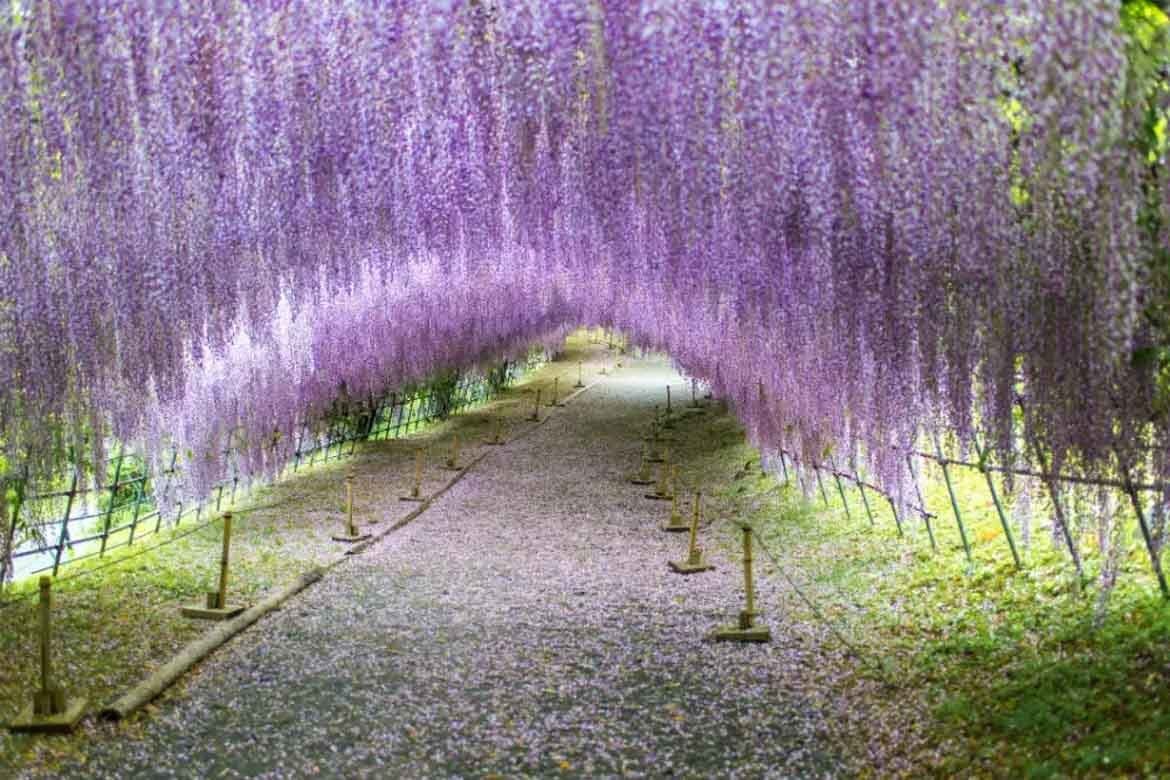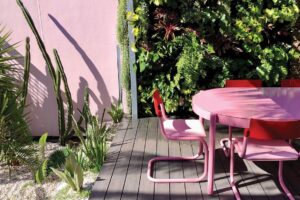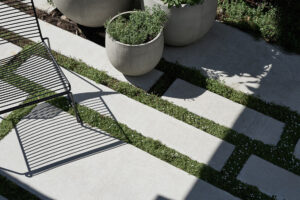What are climbing plants?
Climbing plants are plants which attach themselves to an exterior structure to support its upward growth. This is a method which allows plants to climb over other plants and receive more sunlight on their leaves – without spending any excess energy on strengthening their own self-supporting shoots. Climbers cannot support their own vertical growth, so attaching themselves to other surfaces is the only way they can expand.
All climbers are vines, but not all vines are climbers. There are three broad categories of vine growth; climbers, creepers, and trailers. Climbing vines grow upward, creeping vines grow horizontally along the ground, and trailing vines grow downward.
There are innumerable species of climbing vines around the globe. The fastest growing climbing plants species for home gardens include:
- Passionfruit
- Wisteria
- Bengal trumpet
- Ivy
- Honeysuckle
- Scarlet runner bean
- Grapevine
- Clematis
- Jasmine
- Orange trumpet
- Sweetpea
- Creeping fig
- Rose banksiae lutea
- Parthenocissus
- Bougainvillea
Many of these species are introduced. There are a number of fast growing native Australian climbers as well. Planting these vines – especially vegetables and herbs – could help to improve the natural environment and provide a food source for local wildlife/native insects. The best native Australian climbing plants for home gardens are:
- Pandorea Jasminoides
- Bluebell creeper
- Kennedia
These plants are all flowering vines with a distinct appearance. For an overview on their maintenance, how to plant them, and where to get them, see below.
The 10 fastest climbing plants Australia with flowers
10. Ivy

Sunlight: Bright, indirect light (no direct sun)
Water: every 5 to 7 days (keep soil moist, not wet)
Ivy is an evergreen climbing vine with native species spread across the globe. Ivy is a very common plant, especially as a feature of modern gardens. Ivy has thick, lush leaves which are perfect for screening your backyard away from outside eyes. You can buy common devil’s ivy online, which is one of the hardiest species of Ivy and can thrive almost anywhere.
09. Bougainvillea

Sunlight: Full sun
Water: little to no watering once established (blooms better when dry). While growing, deep water every 4-6 weeks or frequent shallow watering.
Bougainvillea is a beautiful thorny vine with large, colourful flowers. The most common bougainvillea has pink flowers, but there are also white and purple flower variations. Bougainvillea can be kept in pots or trained to climb. Bougainvillea climbs best when trained and is best suited for trellises to aid its growth because it is not as strong as Ivy.
08. Orange trumpet

Sunlight: Full sun
Water: 2.5cm per week (summer)
Orange trumpet is a fast growing evergreen climber native to tropical areas which prefers warm and temperate climates. Orange trumpet vine needs some shelter from cold winds, but is extremely hearty beyond this and will require regular pruning to avoid it taking over your garden.
Orange trumpet vine has orangey-yellow flowers which bloom between autem and winter. It is best suited to warm climates like Brisbane, though it can still thrive in Sydney and Melbourne. Orange trumpet vine grows very quickly and needs little encouragement, making it perfect for walls and for fences.
07. Clematis

Sunlight: Full sun (at least 6 hours / day)
Water: 2.5cm per week
Clematis is a genus of climbing vine with more than 300 different species. Clematis hybrids are also very popular, mostly in Japanese and Chinese households. Clematis is a leather flower plant which has purple flowers or white flowers with purple markings. Australia also has a species of native clematis (aristata), which has small star-shaped flowers.
06. Jasmine

Sunlight: Direct sunlight or partial shade depending on type
Water: Deep watering every few days for the first year after planting.
Jasmine is a sweet smelling vine with creamy white flowers that thrives in warm and temporate climates. Jasmine can be trained to climb trellises or fences and some variations of Jasmine can grow up to 10 feet. Jasminum sambac is an edible species of Jasmine, but every other Jasmine species is poisonous – so make sure to do your research before trying to make Jasmine tea at home.
05. Bluebell Creeper

Sunlight: Full sun or light shade
Water: 2.5cm per week
Bluebell creeper is a native Australian species which can twine around trellises, walls or posts. It is also known to cover the ground, creating a layer of greenery wherever it spreads. Bluebell creeper is incredibly virile and you will need to be vigilant to make sure that it does not take over your garden. Bluebell creeper has a number of small, deep blue flowers with a bell-like hanging shape. It also develops oval fruits during autumn with an apple like taste. Bluebell creeper can grow up to 4 metres tall with support.
04. Passionfruit

Sunlight: Full sun
Water: Deep watering twice a week
Passionfruit vines are hardy, evergreen vines native to South America which can grow up to 7 metres high and 2.5 metres across. They are great for shading areas if you grow them over a trellis or pergola. Passionfruit vines thrive in a sunny area with no competitors as they often lose out on resources when competing with trees or roots. Passionfruit has a lifespan of around 6-7 years and can start bearing fruit after 12-18 months.
03. Dusky Coral Pea

Sunlight: Sunny or semi-shaded (flowers best in full sun)
Water: Low after becoming established
Dusky coral pea is a fast growing native Australian vine with pinky red flowers that can cover a wall or trellis with ease if given the right soil, support and sunlight conditions. It can be used as a salad garnish and the flowers release delicious, sweet nectar.
02. Honeysuckle

Sunlight: full sun
Water: One a week (summer). Keep soil evenly moist.
Honeysuckle is a very fast growing plant which can thrive in almost any climate. Honeysuckle has a variety of colourful flowers including yellow, white, orange, pink and a mixture of the four. Honeysuckle nectar is extremely sweet and can be sucked out of the flowers for a delicious drop of natural sugar.
01. Wisteria

Sunlight: 6 hours of direct sun
Water: Regularly until established. In drought, water weekly.
Wisteria is a gorgeous climbing flower vine with vibrant racemes that bloom purple in spring. Wisteria can also be pink or white, though lilac and violet are more common. Wisteria’s flowers hang down, making them the ideal plant to form a canopy of flowers over a pergola or hanging from an archway. Wisteria is easily one of the most popular species of climbing flower vines around the world – and for good reason.
Trouble deciding how to take care of these plants? See here for the best hanging planters available for purchase and here to learn about the air purifying capabilities of common houseplants.







